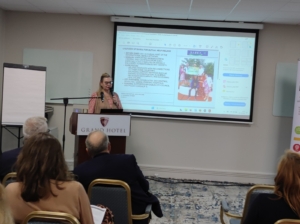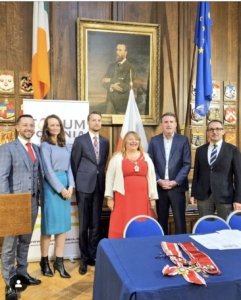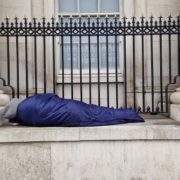Gintaras, a man in his 40s from Lithuania, had been working informally in Northern Ireland for several years. After saving some money, he decided to return home to his family in Lithuania. With this plan in mind, he made his way to Dublin, intending to buy a ticket at the airport. Unfortunately, once he arrived, he realized that he hadn’t fully thought it through – the earliest flight to Lithuania wouldn’t be available for a few days. Left with no choice but to wait in Dublin, he began searching for accommodation.
This led to another unpleasant surprise: accommodation prices in hostels for same-night bookings were all above €200. As he wandered from hostel to hostel hoping for a more affordable option, he met a group of women who struck up a conversation with him. Trusting them, Gintaras ended up buying several rounds of drinks. Eventually, they offered him a place to stay for the night at their rental apartment. They continued drinking together, and at one point, the woman offered him a pill, claiming it would help with his headache. Gintaras woke up the next morning with a pounding headache and an empty wallet – all his savings were gone.
Devastated, he found himself wandering the streets of Dublin with nowhere to turn. He reached out to several aid organizations and was twice given emergency accommodation where he could rest and clean up. But things took a darker turn when, a few days later, he was assaulted and left badly bruised. Desperate and out of options, he approached two organizations seeking help for a return to Lithuania, who then referred him to Barka.
The team at Barka met with Gintaras and, after hearing his story, agreed to help him. They arranged a ticket back to Vilnius, providing him with the practical and emotional support he needed. The Barka staff spent time with Gintaras, listening to his experiences in Ireland and his hopes for the future. A skilled construction worker, he expressed his wish to find work in Lithuania and rebuild his life. The Barka team took him to a pharmacy to purchase the necessary dressings for his injuries and provided him with food for his journey. They then accompanied him to the airport, ensuring he safely passed through security and was on his way home.
Through their compassionate intervention, Barka was instrumental in preventing Gintaras from falling into homelessness on the streets of Dublin. Their support helped him safely return to his family, saving him from further risk and giving him a renewed chance to build a stable life in Lithuania.
Barka’s role in this case highlights their dedication to homelessness prevention and their life-saving assistance for individuals at critical points in their lives.







